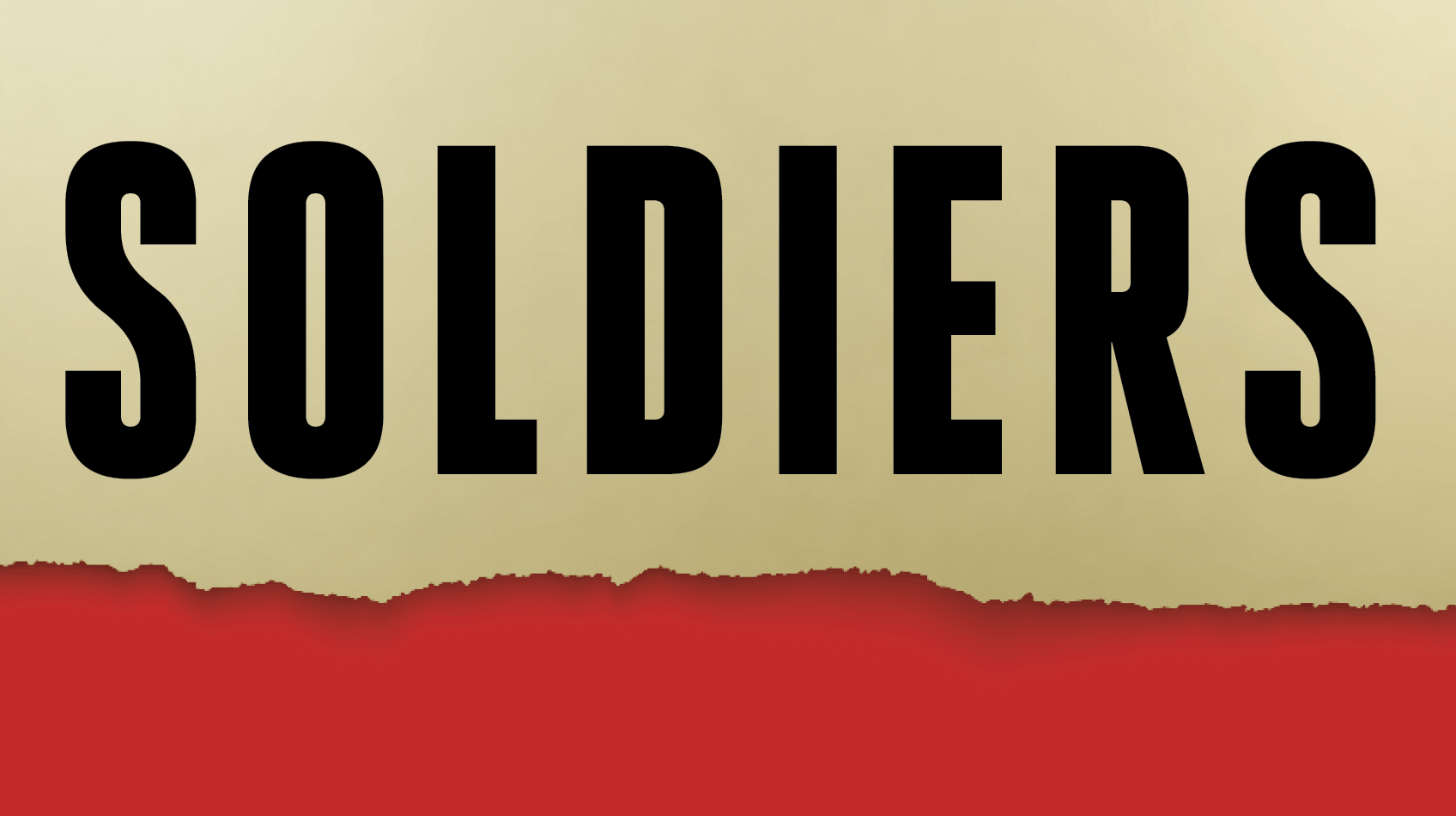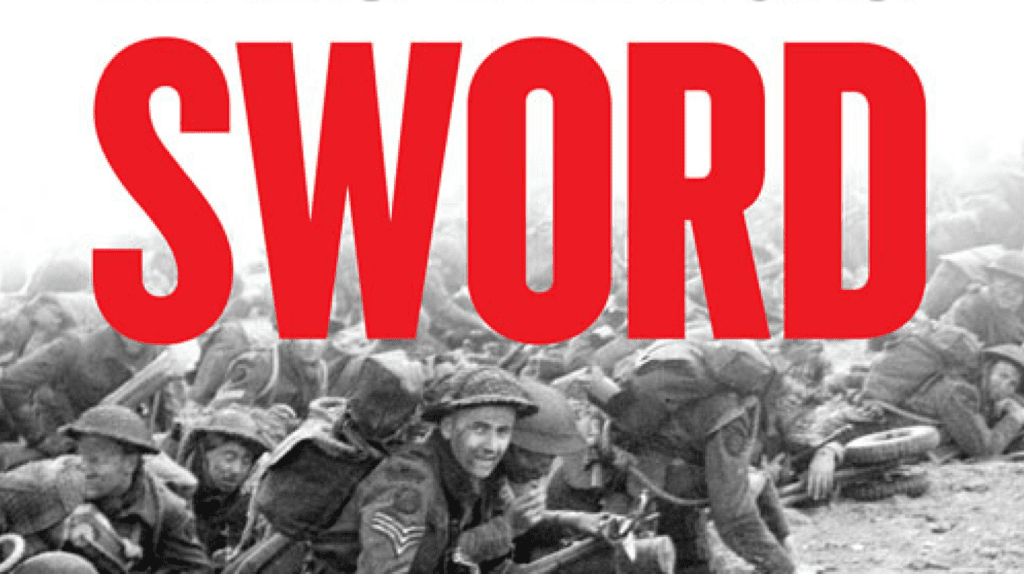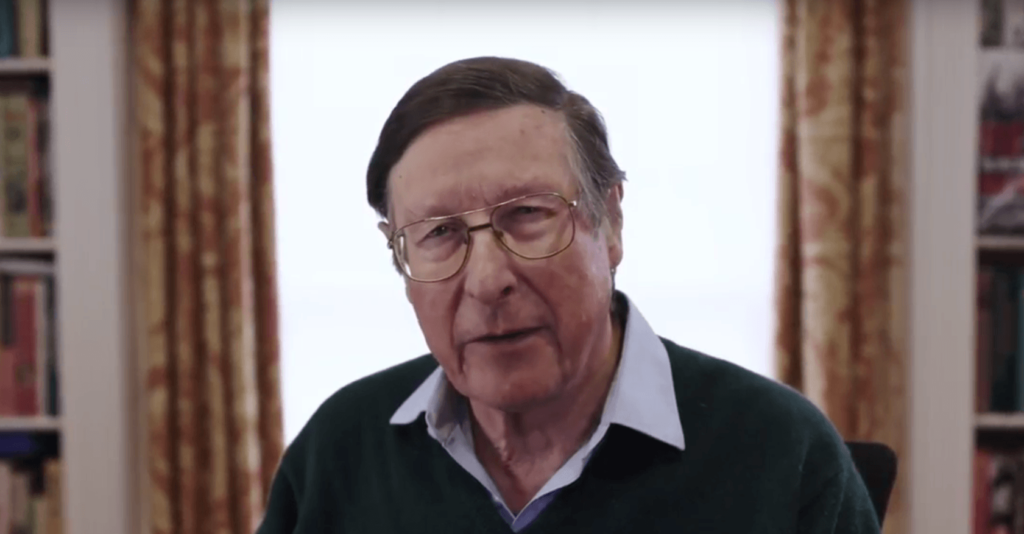First published in The Times on Saturday, 13 November 2021.
Tomorrow the Queen will forsake her enforced rest to attend the annual Service of Remembrance at the Cenotaph [this was published before her last-minute withdrawal]. It is an occasion that she views with a special sense of duty, because of her own memories of World War II. It is not mawkish, I hope, to suggest that she recalls a host of young men known to her personally, who in those years fought and died.
One of them was a twenty-five year-old Guards officer named Ian Liddell. I have just edited a collection of stories about soldiers, which seeks to trace both their experience through the ages- tragic, comic, droll, heroic, sometimes even cowardly- together with society’s changing perception of them. We shall return to the last bit later. Let us begin, however, with an account of the Queen’s Coldstream acquaintance, which might help a little to understand what that war meant to their generation.
Liddell was a gentle, humorous, quixotic young man with a record of schoolboy japes. He loved animals, and had ambitions to become a vet. His company spent much of the first half of the war guarding the Royal Family, and he was thrilled when George VI presented him with a Labrador puppy. One day he telephoned his mother from Windsor, asking her to send him some cardboard Easter eggs.
He explained that he was performing in a pantomime which the Coldstream were staging for their royal charges: ‘I am playing the part of a chicken, and want to lay eggs in the laps of the King and Queen and princesses’. The show is said to have won rave reviews from its audience.
After D-Day Liddell sailed for France with his battalion, returning only briefly in January 1945 to marry a WAAF. On 3 April, barely a month before the end of the war, when many men were engaged in a desperate competition to survive to see victory, his company was ordered to capture a bridge over the river Ems.
‘Don’t let’s die today, boys’, ran a chant composed by fellow-officers, ‘Don’t let’s die today/ We’ve given all we’re going to give/ We’re very, very keen to live!’.
Liddell had two hours to consider his task, so that what followed was not an impulsive act, but instead a carefully considered one. Through binoculars, the British could see explosives laid on and under the bridge, including an aircraft bomb.
He decided that the only chance of success was that he alone should dash to sever the detonator wires, before his men advanced. At H-Hour he duly ran forward, clambered over a German barricade of tree trunks then, amidst a storm of fire from both sides, ran to each successive charge and cut the fuses. He then waved the company forward to take the bridge and sixty prisoners, with the loss of only one man killed. Astoundingly, he himself survived.
A fellow officer later described Liddell as a simple man- not stupid, instead straightforward: ‘he did what he did because he thought he should’. Yet three weeks later near Rotenberg, he faced the appointment in Samarra that had seemed his assured lot at the Ems. A chance bullet passed through a fellow-officer’s head before hitting him also. He died without knowing that he had been awarded the VC, which George VI later presented to his widow.
The Queen will tomorrow think of a host of vanished faces, but I should like to imagine that young man among them, if only because of the chicken. In one sense, Liddell and his kin were fortunate. Many conflicts, and many soldiers’ deaths, are afterwards judged to have been futile. Even in our risk-averse age, however, few people doubt that World War II had to be fought, and that Britain represented more-or-less good, against forces of indisputable evil.
A generation earlier, there was less certainty about this. In 1920, they engraved on Lutyens’ new Cenotaph the simple words ‘THE GLORIOUS DEAD’, because only thus did it seem possible to begin to reconcile millions of grieving families to the loss of loved ones. Doubts nonetheless persisted about whether the carnage was justified, which have become more vigorous during the intervening century.
A popular myth has grown up, that such battles as Passchendaele were uniquely terrible. Yet every student of conflict knows how ghastly were the horrors generated by- for instance, the 17th Century Thirty Years’ War, not to mention the 1941-45 Eastern Front. What made the 1914-18 Western Front different was the participation of millions of literate citizen soldiers. The likes of Robert Graves, Henry Barbusse, Siegfried Sassoon possessed powers to record their revulsion, such as were almost unmatched in earlier ages.
Some people today find it hard to believe that more than a few warriors relish their work. The historian Margaret MacMillan observes: ‘the enjoyment of war is something that makes civilians in peaceful societies uncomfortable. A Canadian general I was once interviewing spoke about the excitement, but only after I had turned off my tape-recorder. It was, he said, like riding a very fast motor-cycle. The knowledge that you could crash and die at any moment added to the thrill’.
The knights of the Middle Ages regarded conflict as the supreme blood sport. I tell the story of the ‘Combat of The Thirty’, a 1351 contest in Brittany, which began when Robert de Beaumanoir, a Breton noble on the French side, challenged the Anglo-Breton party to identify a champion with whom he could engage in single combat. So many others demanded to play that 30 men on each side were eventually named, who fought all day before a large audience with swords, spears, daggers and axes. When, during a recess, a combatant called for a drink, one of his foes cried: ‘’drink thy blood Beaumanoir, and thy thirst will pass!’.
By the time the French were declared victorious, every man on both sides was wounded, eight of the English were dead, and four of their opponents. The winners became as much contemporary celebrities as today’s heroes of Strictly Come Dancing. Long afterwards, the chronicler Froissart asked why a certain old man was treated with special honour at the table of King Charles V of France. He was told that it was because that knight had been one among The Thirty.
The same murderous sporting spirit persisted during the Peninsular War in Spain, when there were frequent challenges to single combat, one of them in 1812 outside Salamanca. A certain Captain Brotherton describes how he fought a French officer ‘between the two lines of skirmishers, who stood still, by mutual consent, to witness it….[His antagonist] was a mere youth who, I suppose, thought it necessary to make this display as a first essay…I shall never forget his good-humoured, fine countenance during the whole time we were engaged…talking cheerfully and politely as if we were exchanging civilities instead of sabre cuts.
‘As my antagonist was making the last cut at me I had the opportunity of making a thrust at his body which staggered him, and he made off. I felt much annoyed when I found on enquiry that the thrust had moved mortal, as I had admired the chivalrous and noble bearing of this young officer. The cut I received on the forefinger of my bridle hand proved a great grievance for some time, as it prevented me from playing the violin in the bivouac’.
Almost a century later, in 1899 a correspondent wrote exuberantly from a South African battlefield: ‘the soldier, who fares simply, sleeps soundly and rises with the morning stars, wakes in an elation of body and spirit without an effort and with scarcely a yawn’. That was Winston Churchill, of course, who shamelessly loved battle.
An aspect of the warrior culture which seems extraordinary to us is the norm of fortitude that in past centuries protagonists were expected to display- standing erect in line or square to exchange fire with the enemy at ranges of perhaps 50 yards, hour after hour and then battle after battle- in the Napoleonic era, for years on end.
Another of my subjects, the Russian Natezhda Durova, disguised herself as a man and abandoned a husband and child to join the cavalry, aged 23 in 1807. She fought on through the 1812 campaign, and wrote later: ‘What a lot of absurd things they told me about my first battle, about the fear, timidity, and the late, desperate courage!’. She loved it all, and when unmasked as a woman successfully petitioned the Czar to be allowed to soldier on.
Lord Uxbridge, Wellington’s second-in-command, was shot in the leg just before the end of Waterloo in 1815, and had the limb amputated without benefit of anaesthetic. One of those present described how Uxbridge chatted throughout the operation, complaining only that he thought the saw was not very sharp. He said afterwards, smiling, ‘I have been a beau these forty-seven years and it would not be fair to cut the young men out any longer’. Then, said the witness, ‘he asked if we did not admire his vanity’.
The point about most such stoics, in contrast to the conscripts of the two 20th Century world wars, is first, that they had chosen to be there; and second, that many aristocrats of former times prided themselves on extreme courage, even if they possessed no other merit.
As a foolish 20 year-old in 1915 Basil Liddell Hart, later a famous strategic guru, wrote from Cambridge Officers Training Corps that he believed compulsory military service ‘the only possible life for a man, and brings out all the finest qualities of manhood. I have developed rather a contempt for mere thinkers’.
Societies need courageous warriors when faced by the necessity to defend themselves. Yet it seems a relief that today, we no longer applaud war as a mere rightful amusement. The 345th and last story in my book is an extract from the 2015 autobiographical novel Rain, written by Barney Campbell, and based on his experience in Afghanistan with the Blues & Royals.
It describes the funeral back in England of a young lieutenant, killed by an IED. As the men of his troop assemble outside the village church, their sergeant-major seeks to steady them. When a soldier says that he has never before attended a funeral, the RSM responds: ‘They’re shit, fellas. Not going to lie. People stand up and try to speak as though it’s a celebration of a life. Which is bollocks. The whole thing’s a f—ing tragedy’.
The passage above does not make a pacifist of either Campbell or of me. Rather, it is part of an attempt such as is made by all responsible writers, to explain war’s huge contradictions, which cause the Belarusian Nobel prizewinner Sveltlana Alexievich to describe it as ‘one of the great human mysteries’.
We have rightly become more wary of asking young men and women to give their all- to join the ‘Glorious Dead’- after two lost wars in Iraq and Afghanistan, fought for what have been less than glorious causes, and embarked upon by our politicians with a shocking insouciance or even recklessness.
Today’s armed forces face a further difficulty, of attempting to reconcile a historically macho barracks culture with more compassionate conduct such as our whole society aspires to. Gen.Sir Nick Carter, chief of the defence staff, this week acknowledged to a Commons select committee: ‘we encourage a laddish culture’. He agreed that this must change, but said that it reflects the fact ‘that ‘ultimately soldiers have to go close and personal with the enemy. What you’ve got to try and do is square both these outputs’.
Shorn of euphemisms, the general was articulating the dilemma: can we keep our soldiers mean, tough, ready to kill or be killed, if we also tame them ?’. Some would say- rightly, in my view- that given what their trade demands of them, together with the number recruited from disastrous home lives, what is remarkable is not how many commit crimes, but how few.
Johnson Beharry, the Grenadian who won a VC in 2004 for extreme courage under fire in Iraq, wrote in his autobiography: ‘we’re all running from something. The army has given us a place to hide’. He might have added, that it sometimes empowers men and women to make successes of previously purposeless lives.
Yet it is unacceptable to offer any excuse or mitigation for brushing beneath the mess carpet such ugly episodes as the 2012 murder of a Kenyan woman, allegedly by British soldiers, and more recent atrocities in Afghanistan, for which nobody has been charged.
I conclude my own book: ‘Societies…must beware of fostering a culture in which virility, courage, ruthlessness and barbarity become confused….The challenge, for all armies in all ages, is to cherish warrior virtues, while rejecting warrior excesses. If we ever allow a spirit to prevail either on the battlefield or, worse still, back at home or in Parliament, that shrugs over a dead civilian or prisoner ‘what’s one less towelhead or Irish terrorist?’ then we would lose the most important battle of all’.
As the last of the World War II generation pass from the scene, a change is coming over our society. ‘The profession of a soldier is allowed to be lawful by the word of God’, wrote General George Monck in 1645, ‘and so famous and honourable amongst men, that emperors and kings do account it a great honour to be of the profession, and to have experience of it’. Likewise lesser folk. Though the British have never been a militaristic race, we have taken pride in being a martial one.
Consider how many family photographs in British homes show ancestors in uniforms. Most wore them only for a year or two, in extreme youth. Yet that period- if, unlike Ian Liddell and so many others, they were fortunate enough to survive it- remained a proud memory.
Today, there are not only far fewer British warriors, but also much less public understanding of what being a soldier means. The challenge, for the army’s leaders, is to preserve the capacity for disciplined ferocity which is indispensable to soldiers’ prospects of success on the battlefield, while checking abuses.
When the Queen remembers at the Cenotaph tomorrow, we cannot match her personal memories, but we can share her profound respect for what her soldiers, and those of earlier sovereigns’, have done for the country, while admitting that some were not such people as we should care to have as household pets.
The personal experiences above are taken from SOLDIERS: GREAT STORIES OF WAR AND PEACE, edited by Max Hastings, published by William Collins.



